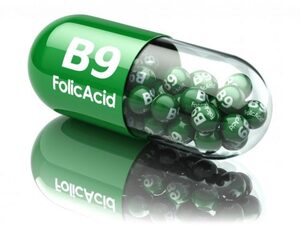Blog Information
- منشور من طرف : HCG Institute
- نشر على : Nov 17, 2023
- الآراء : 218
- الفئة : جنرال لواء
- وصف : Human chorionic gonadotropin (hCG) is a hormone that is Mic injections produced by the placenta during pregnancy. It is often used as a fertility treatment, as it can help to stimulate ovulation.
- موقعك : USA
نظرة عامة
Side Effects of HCG Injections
Human chorionic gonadotropin (hCG) is a hormone that is Mic injections produced by the placenta during pregnancy. It is often used as a fertility treatment, as it can help to stimulate ovulation.
There are a number of potential side effects associated with hCG injections, and it is important to be aware of these before starting treatment.
1. Ovarian Hyperstimulation Syndrome
Ovarian hyperstimulation syndrome (OHSS) is a rare but serious complication that can occur with hCG injections. OHSS occurs when the ovaries produce too many eggs in response to the hCG hormone. This can cause the ovaries to become enlarged and can lead to fluid buildup in the abdomen and chest.
OHSS can be mild, moderate, or severe, and can sometimes be life-threatening. The most common symptoms include abdominal pain, bloating, and nausea. If you experience any of these symptoms, it is important to seek medical attention immediately.
2. Multiple Pregnancies
hCG injections can increase the chances of multiple pregnancies, as they can stimulate the release of multiple eggs from the ovaries. This is why it is important to discuss the risks with your doctor before starting treatment.
3. Birth Defects
There is a small risk that birth defects may occur in babies conceived with the help of hCG injections. This is because the hCG hormone can cross the placenta and affect the developing fetus.
4. Breast tenderness
Breast tenderness is a common side effect of hCG injections. This is because the hormone can cause an increase in estrogen levels. Estrogen can stimulate the growth of breast tissue and can also cause the breasts to retain more water.
If you are considering hCG injections as a fertility treatment, it is important to discuss the risks and potential side effects with your doctor.

How to Administer HCG Injections
If you are among the many people who are looking for alternative treatments for obesity or weight loss, you may have heard of HCG injections. HCG, or human chorionic gonadotropin, is a hormone that is produced naturally in the body during pregnancy. It has been used for decades as a fertility treatment, but more recently, it has been touted as a weight loss miracle drug.
There is some evidence that HCG can help people lose weight, but there are also many risks associated with HCG injections, including serious side effects. In this article, we will explore the potential benefits and risks of HCG injections for weight loss.
What is HCG?
HCG is a hormone that is produced naturally in the body during pregnancy. It is also produced in small amounts in both men and women. HCG is responsible for a number of pregnancy-related functions, including the development of the placenta and the regulation of the mother's metabolism.
HCG is typically only produced in large quantities during pregnancy, but it can also be produced in small amounts in both men and women. In men, HCG is produced in the testicles, and in women, it is produced in the ovaries.
HCG is typically only produced in large quantities during pregnancy, but it can also be produced synthetically in a laboratory. HCG injections are typically made from a synthetic form of the hormone.
How does HCG work?
The exact mechanism by which HCG works is not fully understood. However, it is thought to work by tricking the body into thinking that it is pregnant. This causes the body to release stored fat into the bloodstream, which can then be used for energy.
HCG is thought to work by tricking the body into thinking that it is pregnant.
HCG is typically injected into the muscle or under the skin. The hormone is then absorbed into the bloodstream and circulated throughout the body.
What are the benefits of HCG injections?
The main benefit of HCG injections is that they can help you lose weight. Injections of HCG are thought to help the body release stored fat, which
